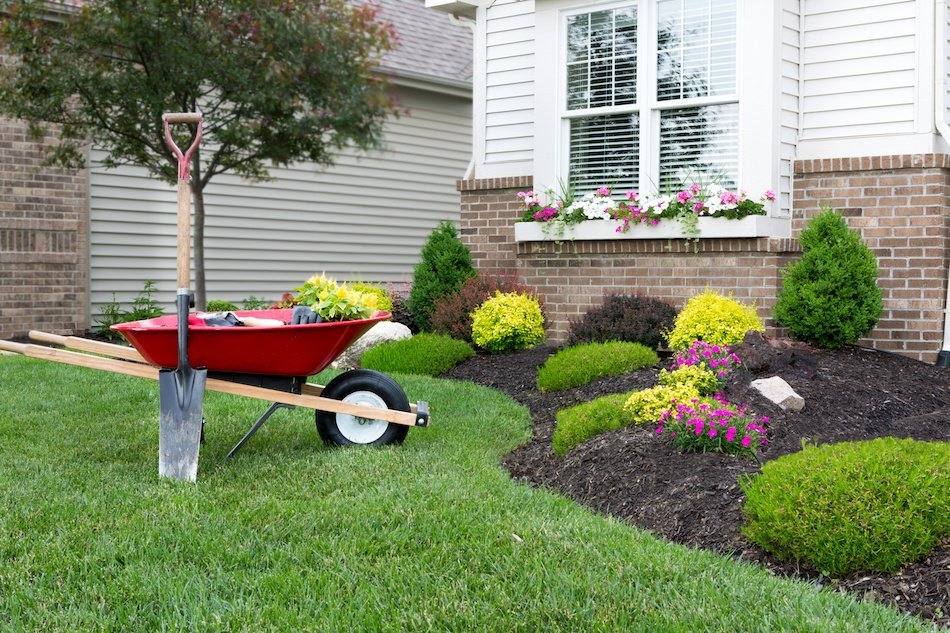If you have a green thumb and enjoy working with plants, you can make good money by starting a gardening business!

Whether you specialize in landscaping or planting a vegetable garden, there is a need for gardening work, especially in the spring and summer months. This article covers five things you need to know before starting a gardening business.
1. Write a business plan
A business plan is essential for any type of business, regardless of its size. A well-designed business plan solidifies your goals and the strategies for achieving those goals. Having a clear vision can help you narrow your focus so that you don't get overwhelmed by the day-to-day running of your business. In order to create a business plan, you first need to study the market. The key is to understand your target audience, your competitors, the prices you can calculate, and the demand in a particular location.
Here are some of the components of a detailed business plan:
- Summary
- Mission and vision
- SMART goals and targets
- Services that you offer
- Operational strategies
- Target market
- competition
- Cost and sales forecasts
- Marketing and Sales
2. Get the funding you need
The next thing you need to do is how to secure enough working capital Equipment loan to get started. Calculate the type of funding you will need, when you will need it, and the estimated running costs you will have to pay each month. Choosing the right small business loan will help with budgeting and forecasting during the startup phase, the first month, the first quarter, the first year to the next three years. You have an idea of the capital required to start and run a gardening business over the long term. A positive cash flow right from the start ensures that your gardening business runs smoothly. Some of the best small business loan options on the market include SBA loans, working capital loans, lines of credit, and term loans.

3. Choose a business model
Once you have a detailed business plan in place, you should know who your target market is and what services you offer. Potential clients you can work for include:
- landlord
- Residential areas
- Real estate and rental agents
- Inn or hotel managers and owners
- Nursing homes
- Commercial space
- Schools or universities
- Real estate management companies
You can also choose from a variety of gardening chores such as mowing the lawn, cutting hedge, landscaping, installing ponds, creating a vegetable garden, and much more. The services you offer reflect the type of customers you serve, and you can choose to target a niche or offer full gardening services. The pricing of your garden services is another important factor. Check with other gardening companies in your area and see how much they charge for similar services. You can charge by the hour or project, as you wish.
4. Hire the right people
This phase is optional as many gardening contractors start out on their own before expanding to hire staff. If you want to hire other employees, just like you do with real estate companies, you have a solid recruiting strategy in place. Hire the right people is critical to the success of your home improvement and gardening business. A recruiting strategy can help you identify the roles that need to be filled, the types of people you are looking for, and the experience and skills required to take on the job. For example, you may need to hire an accountant to keep track of your finances or a landscaper to beautify gardens. Understanding these requirements will enable you to create accurate job descriptions to attract the best talent to your gardening business.

5. Establish a customer base
Growing a customer base for a start-up business is not an easy task, but with careful planning and consistent effort, you can find customers for your business. Here are some of the strategies you can implement to find and grow a customer base:
- Research and contact the appropriate contact person for nursing homes, schools, property management companies and more.
- Word of mouth, also known as soliciting existing customers for information about your business
- Offering loyalty cards and discounted services to attract new customers. The goal is for them to keep using your services and eventually pay full price.
- Create accounts on various social media platforms and advertise your services there.
- Build and optimize a website to expand your reach.
What's next? Start a Gardening Business Today!
Planting trees and flowers takes patience and hard work, but your efforts are well worth it when your trees and plants start to bloom or bear fruit. Starting and growing a gardening business also requires the same investment, skillful planning, and consistent effort. With the right approach, your gardening business will eventually grow and prosper.




